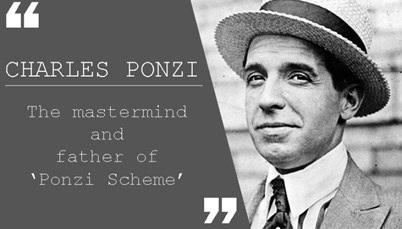You have likely seen the local headlines. An apparent $50+ million investment fraud is unwinding in northeast Ohio, with a former high school basketball coach and self-proclaimed single-family real estate expert being accused of bilking investors in a Ponzi scheme. You probably think, “This can’t happen to me.” The victims likely felt the same but fell victim to fraud at the hands of someone they trusted. Learn common red flags and how to avoid them below.
Real Estate Affinity
Sadly, it’s a common theme: an individual who has earned the trust of a community uses that trust to commit and perpetuate fraud. This type of fraud, known as affinity fraud, tops the list of most used schemes.
Remember Bernie Madoff? He leveraged his Jewish faith to network within the Jewish community and at prominent Jewish country clubs in New York and Florida, decimating many wealthy community members and organizations.
A 2011 study investigating 329 major U.S. investment fraud cases discovered the most common affinity groups targeted were the elderly or retired, religious groups, and ethnic groups. These three target groups accounted for 85% of all the affinity group cases in their study.
While affinity is an entry point, the supposed investment vehicles used are generally unregistered investment products, most commonly promissory notes or IOUs. These notes are usually linked to real estate because investors tend to feel comfortable investing in something they know of from renting or owning a home.
Another big warning sign is a high guaranteed rate of return. There are no free lunches in the investment world, and guaranteed high rates of return should give you more than a pause in your decision-making process. If it’s too good to be true…
Overly consistent returns, another trait in Madoff’s scheme, are another red flag. All investments inherently have various risks. High returns will naturally have higher levels of risk, and with that risk comes volatility of returns over time.
Other warning signs are an overly pushy salesperson, overly complex strategies, missing documentation (think prospectus or offering memorandum), or account statement discrepancies where your custodians’ statement varies from what the fraudster states.
The cryptocurrency craze may have caught your attention in recent years. However, be mindful that some of these may be nothing more than a public-facing front for Ponzi schemes and other frauds. social media and the internet allow people to connect more quickly than ever before. Beware there are many scam artists on these networks constantly trying to build credibility and trust to bilk money from members.
Custodians
A custodian is a company involved in the safekeeping of securities for investors. Think Fidelity, Charles Schwab, Pershing, and TD Ameritrade. (True Wealth works all four major custodians.) Most investors will be well served using the myriad publicly traded securities that can be held at these firms.
If you work with a local advisor, you may grant them limited power to effect their investment advice on your behalf through the chosen custodian. Custodians then execute the trades and provide an accounting of your transactions and account values—a system of checks and balances.
Victims of the local fraud made checks payable directly to the company, who deposited those funds in their business bank account. Same for Madoff’s victims. No custodian was used. No system of checks and balances.
If a private, illiquid investment is recommended, extreme care is warranted. Large custodians may approve institutional-quality private investments to be held on their platform. To gain approval, private funds must pass the custodian’s due diligence. While passing this due diligence process doesn’t imply the custodian recommends the investment, it does offer a level of legitimacy. Self-directed custodians that claim to specialize in “alternative investments” generally have lesser standards than the large custodians.
These investments should come with necessary legal and audit documents. Call the auditor or law firm to make sure they produced the documents. Check the SEC website whether the security is registered.
While there may be benefits to using private investments, they do involve significantly more complexity, opaqueness and risk. Caveat emptor.
Kevin Kroskey, CFP®, MBA | Managing Partner August 2022



